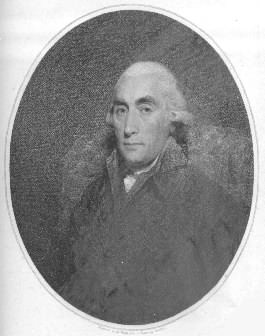Joseph Black
|
|
Joseph Black (16 April,1728 - 10 November,1799) was a Scottish physicist and chemist.
In 1746, he entered the University of Glasgow. Also, Black studied at Edinburgh University and discovered carbon dioxide (which he called `fixed air´) in 1754. In 1756 he described how carbonates become more alkaline when they lose carbon dioxide, whereas the taking-up of carbon dioxide reconverts them. He was the first person to isolate carbon dioxide in a perfectly pure state.
His work aided in the discrediting of the belief in the actions of the fiery principle called phlogiston.
In 1761 he discovered that ice absorbs heat without changing temperature when melting. From this he concluded that the heat must have combined with the ice particles and become latent.
Between 1759 and 1763 he evolved that theory of "latent heat" on which his scientific fame chiefly rests, and also showed that different substances have different specific heats. James Watt was his pupil and assistant.
In 1755 he discovered magnesium.
Template:Scientist-stubde:Joseph Black
fr:Joseph Black
it:Joseph Black
ja:ジョセフ・ブラック
nl:Joseph Black
pt:Joseph Black

